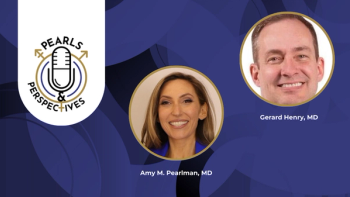
Clinical implications of study evaluating testosterone therapy and AKI

Key Takeaways
- Testosterone replacement therapy shows low incidences of AKI and atrial fibrillation, approximately 2-3%, indicating its general safety and efficacy.
- Informed patient counseling on TRT's risks and benefits is crucial for shared decision-making in clinical practice.
"I think it's really important when we're prescribing any medication to our patients to really have a good idea of what they can expect," says Evan Panken, MD.
In this video, Evan Panken, MD, discusses the clinical implications of the study “Association of Testosterone Replacement Therapy With Atrial Fibrillation and Acute Kidney Injury,” which he presented at the 2024 Sexual Medicine Society of North America Annual Meeting in Scottsdale, Arizona. Panken is a urology resident at Northwestern University Feinberg School of Medicine in Chicago, Illinois.
Transcription:
What are the potential real-world implications of these findings for clinical practice and patient care?
I think it's really important when we're prescribing any medication to our patients to really have a good idea of what they can expect. Ultimately, these findings, both in the TRAVERSE trial and our trial, the absolute number of men experiencing AKI and atrial fibrillation were very low, in the order of 2% to 3%, but I think it's important, especially when we're talking about shared decision making, counseling our patients on risks and benefits of trying a new medication, especially testosterone replacement therapy, we want to make sure they're well informed, and that we can speak accurately to the risks and benefits. How does this inform our clinical practice? I think it provides a little bit more evidence that we need to look further into AKI and testosterone replacement therapy, but I think it also gives us some confidence that these rates are ultimately very low. Testosterone replacement therapy is a safe and effective medication, and so I think that it won't really change how we're prescribing, but maybe some of the some of the conversations around it, and especially some of the research going forward in the area.
This transcript was AI generated and edited by human editors for clarity.
Newsletter
Stay current with the latest urology news and practice-changing insights — sign up now for the essential updates every urologist needs.






